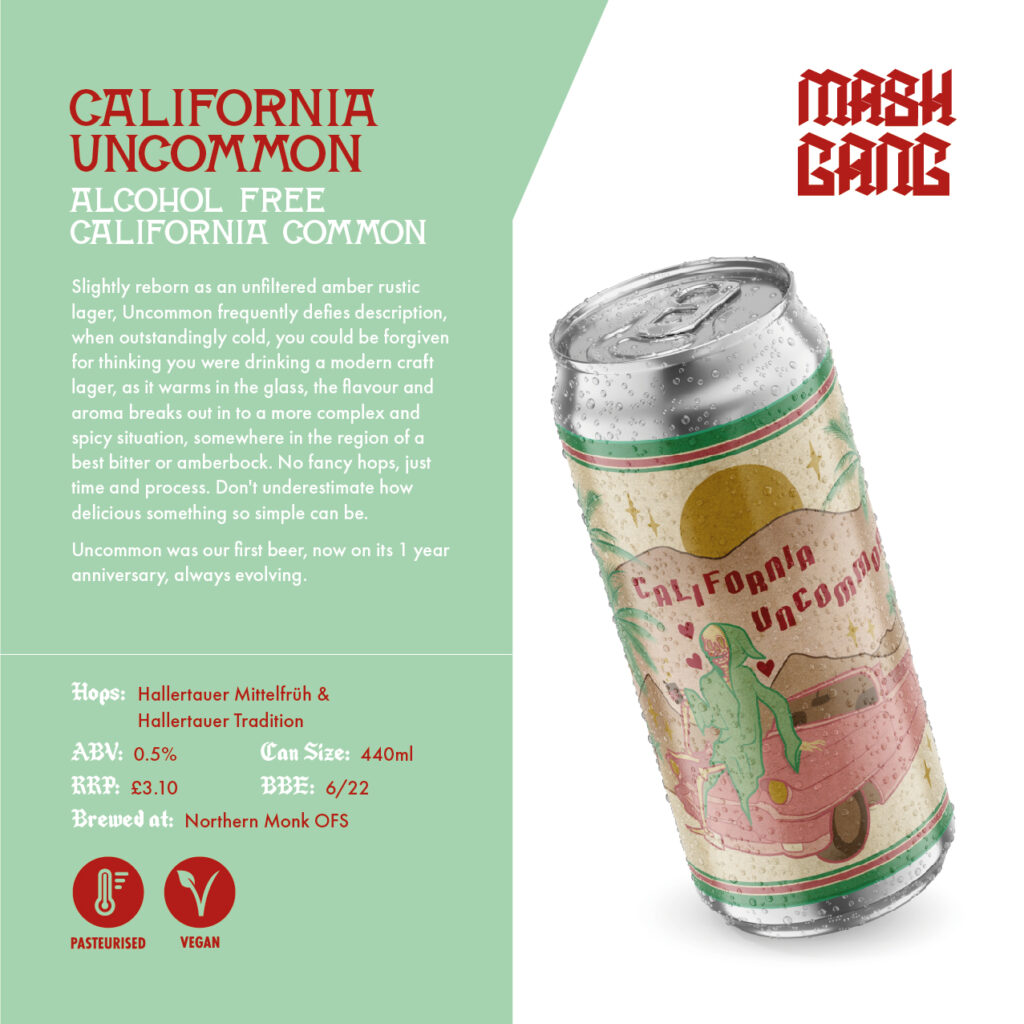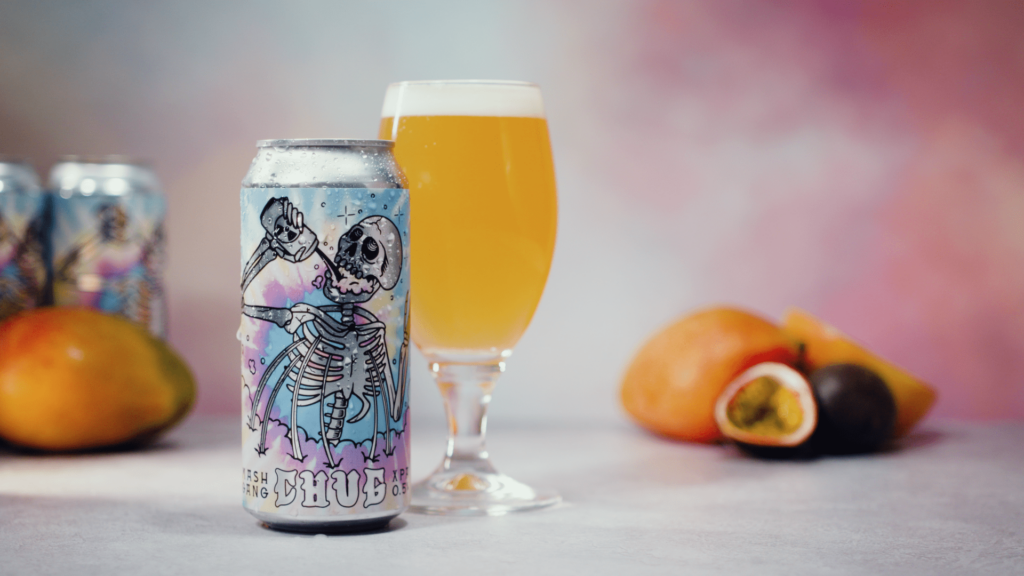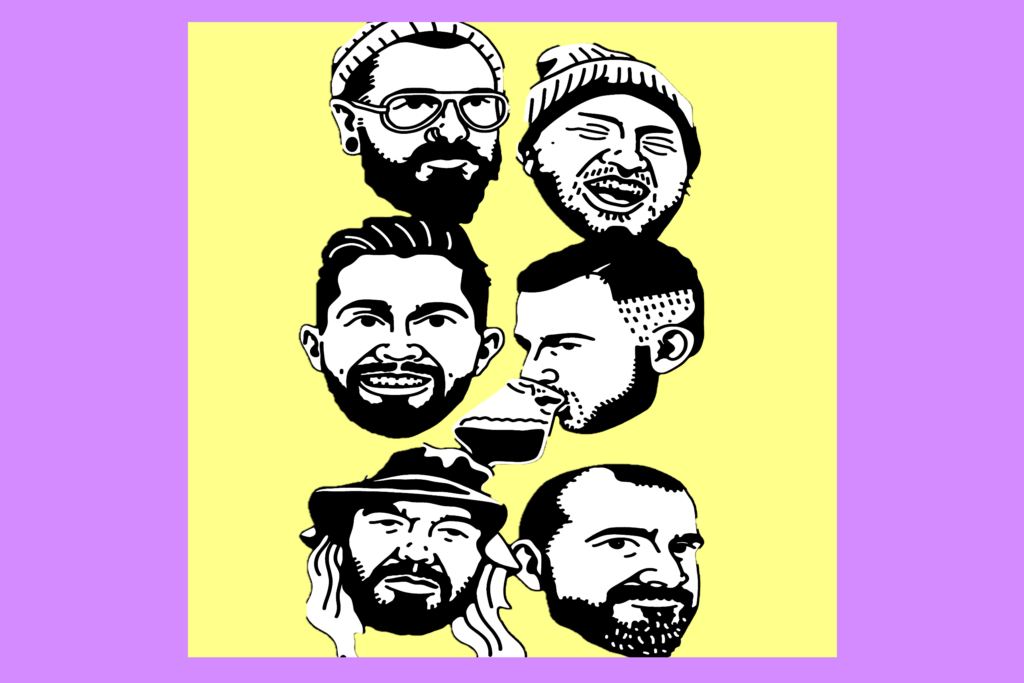With word of beer supply shortages in the UK caused by glassware price increases and possible factory worker strikes, punters may have to turn to smaller breweries to satisfy their thirst this summer.
As winners of the Best New Brewer award at the 2020 AF Beer Awards, Mash Gang have proven themselves worthy contenders in the ever-expanding low and no alcohol space.
Born out of the first lockdown, the founders of Mash Gang started developing low-alcohol beers as a hobby, following numerous brewing projects.
“I’d love to say that there was a big scheme and a lot of forethought in it. But there really wasn’t, was there?” Jordan Childs asks his fellow co-founder, Mike Baggs.
“Yeah, remember the jam phase?” laughs Baggs. The pair describe their failed attempt at developing a banana spread, until a friend noted Childs’ aptitude for brewing beverages.
“I started making tepache, a Mexican ginger beer made out of pineapple. I gave it to someone and they said ‘that’s really good beer’,” says Childs. The friends took this as a sign and got to work. By July of 2020, Mash Gang had created a 100 litre batch of their first beer, the California Uncommon IPA. At 0.5% ABV, this alcohol free American malt liquor has minty and woody hop profiles, as well as cereal, caramel and honey malt – different to other malt products in the market at the time.

Baggs had previously attended the Guinness Brew Academy when working with Diageo, but the pair maintain that none of this prior knowledge came into play when brewing.
“We didn’t know what we were doing, we just sent out samples. We set up a website and I would be kneeling on the living room floor putting bottles in tubes and boxes, sending out orders,” says Childs.
Along with posting beer directly to consumers, Childs also sent out samples to big hitters in the UK beer industry. After a few weeks, the BrewDog AF bar on London’s Old Street, who exclusively focus on low-alcohol beer, posted a picture of a California Uncommon bottle. The BrewDog were impressed, and a launch event for Mash Gang was held that October in the Old Street bar. In preparation for their sold out event, the brewers released nine new limited edition beers.
“Four of those customers that came to that event still buy stuff every month from us, so we must have made a relatively good impression,” says Childs.
Mash Gang began to take off, despite being run out of a shipping container in North Wales. With beers stocked in Brew Dog and Wise Bartender, an upgrade was in order. After doing a collaboration beer with Northern Monk, a partnership was made to allow Mash Gang to use the Old Flax Store brewery for their beers.
“They said, ‘we can’t have you sitting in a metal box in the middle of nowhere,’ and they agreed to let us do a brew a month with them,” says Childs.
Given that Mash Gang originated as a project in lockdown, contract brewing stood as a reasonable solution to not owning a dedicated brewery. Contract brewing involves providing a recipe to a contract brewery, where they brew the beer and package it with their own equipment at a fixed fee. By partnering with fellow brewers to produce their products, the company’s core team could still largely operate remotely – so much so that the original five founders have never been in the same room together.

“You see people talking about the return to work and how operating online isn’t efficient. And then you have us – we’ve never even all met at the same time,” says Childs.
With Baggs’ background in business strategy, several peers in the industry have asked where the distinct Mash Gang tone of voice has come from. Social media posts often resemble an uncensored stream of the team’s consciousness, as Baggs believes that spending less time agonising over tweets is better.
“I think when you have staff and you’ve got the money and resources, you have too much time to think. Too much time for emails and too much time spent in meetings talking about emails”.
Eager to maintain the authentic spirit of Mash Gang, the brewery’s founders have always been reluctant to prescribe a rigid marketing strategy in a vein similar to bigger brands.
“You end up with four bullet points of things that are acceptable, and about ten pages of things that are off brand. It just feels wrong,” says Baggs.
Mash Gang requires each member of their team to contribute equally. Each employee has designed and produced their own beer, from flavour profiles all the way to packaging and production. “Everyone has to own the process at some point or another,” explains Baggs.
The hands-on approach rose from Childs taking on much of establishing the first Mash Gang batch by himself. “Jordan’s attitude was always: ‘just do it, you’ll figure it out.’ And that’s been the mantra all the way along,”says Baggs.
The brewer compares their trial-by-fire to new CEOs of companies spending a week on their shop floors as customer assistants.
“I think we accidentally did that concept, because we just had low resources. So I think, as we hire people, we’re going to make everyone do everything, because it’s going to be essential”.

While Mash Gang intend to have the whole team working full-time by next year, Childs hopes to have employees working only four days a week routinely. He remembers the frustration he felt at being told to “look busy” at the end of menial shifts in his last job. “One of the greatest problems I ever had in an office job was that the only reward for doing your work early was more work,” says Childs.
“I think it’s better to have a focus for your business in the long term of the kind of lifestyle that you want your employees to have. Mine would be that work is a fun, engaging thing that you do, before going back to your real life.”
Rising out of a passion project with friends, Mash Gang’s quarterly targets are designed simply to continue the project as long as possible. “If we make this many beers and sell them, it means that we get to do this as a job for another six months,” says Baggs.
By discovering a trade with so much fulfillment, Baggs and Childs have learned to relish the art of making beer, rather than the profit margins. The pair recall an excerpt from the Bhagavad Gita: “You have the right to work, but never to the fruit of work.”
“As I’ve gotten older, I’ve understood it. You have to love the process. So if you don’t love the process, you never get the fruits of your labour because there is no fruit.”
Featured picture: Mash Gang, Picture editor: Charlotte Doyle

